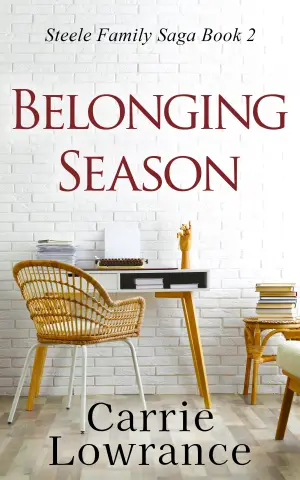I recently dove into All Good People Here, the debut novel by Ashley Flowers, and I can honestly say it was a thrilling journey. As a fan of true crime and gripping mysteries, the premise immediately piqued my interest, especially given Flowers’ background as the host of the popular podcast Crime Junkie. I was intrigued by the idea of uncovering dark secrets in a familiar small town setting, particularly as it involved investigating the unsolved murder of a childhood neighbor.
Set in Wakarusa, Indiana, we follow Margot Davies, a journalist grappling with the haunting memories of her childhood when her neighbor, January Jacobs, was tragically murdered. The gripping narrative takes shape as Margot returns to her hometown to care for her uncle, only to be plunged back into the dark past when another young girl goes missing. The plot is designed to keep readers guessing, weaving together suspenseful twists and surprises, as mentioned by other readers who describe it as engaging and well-written.
One of the highlights of this book is definitely its pacing and structure. The alternating perspectives between Margot in the present and Krissy, January’s mother, in the past create a compelling narrative thread that allows readers to slowly unravel the mysteries. The writing flows beautifully, making it a quick read that’s hard to put down. I found myself fully immersed in the tension, eager to connect the dots between the past and present.
However, it wasn’t without its drawbacks. Many readers pointed out the abruptness of the ending, and I can understand why. Just as things heat up and the threads begin to tangibly align, it felt like the narrative reached its conclusion too swiftly. I experienced a moment of confusion, double-checking to ensure I hadn’t skipped a page. This left me feeling a bit unsettled, as the closure I yearned for didn’t quite arrive. While some may appreciate the ambiguous endings that provoke further thought, I found it slightly unsatisfactory, akin to an incomplete puzzle.
Character development is another area that garnered mixed feedback. Some characters, particularly Jace, January’s brother, were beautifully fleshed out — his trauma and emotions resonate deeply. Yet, I agree with the consensus that Margot’s character, despite being earnest and driven, didn’t evoke the same emotional connection. Her journey felt straightforward, with every lead she pursued yielding results, making her seemingly invincible in the quest to solve the case. I longed for more intricacies and hurdles that might have elevated her character, adding another layer of depth to her pursuit.
Despite these critiques, the book remains a captivating exploration of fear, obsession, and the unknowns of human behavior. The underlying questions — what happens behind closed doors and what secrets neighbors hide — linger throughout, keeping you on the edge of your seat.
In conclusion, All Good People Here is a long-awaited foray into fiction by an author known for her true crime narrative prowess. It provides a blend of suspense wrapped in a small-town mystery that draws you in. Despite a few narrative hiccups and an ending that might not please everyone, if you’re a fan of gripping thrillers with unexpected twists, this book is definitely worth your time. I’d rate it a solid 4.5 stars and highly recommend it for those looking for a binge-worthy read that will keep you guessing until the very end!








